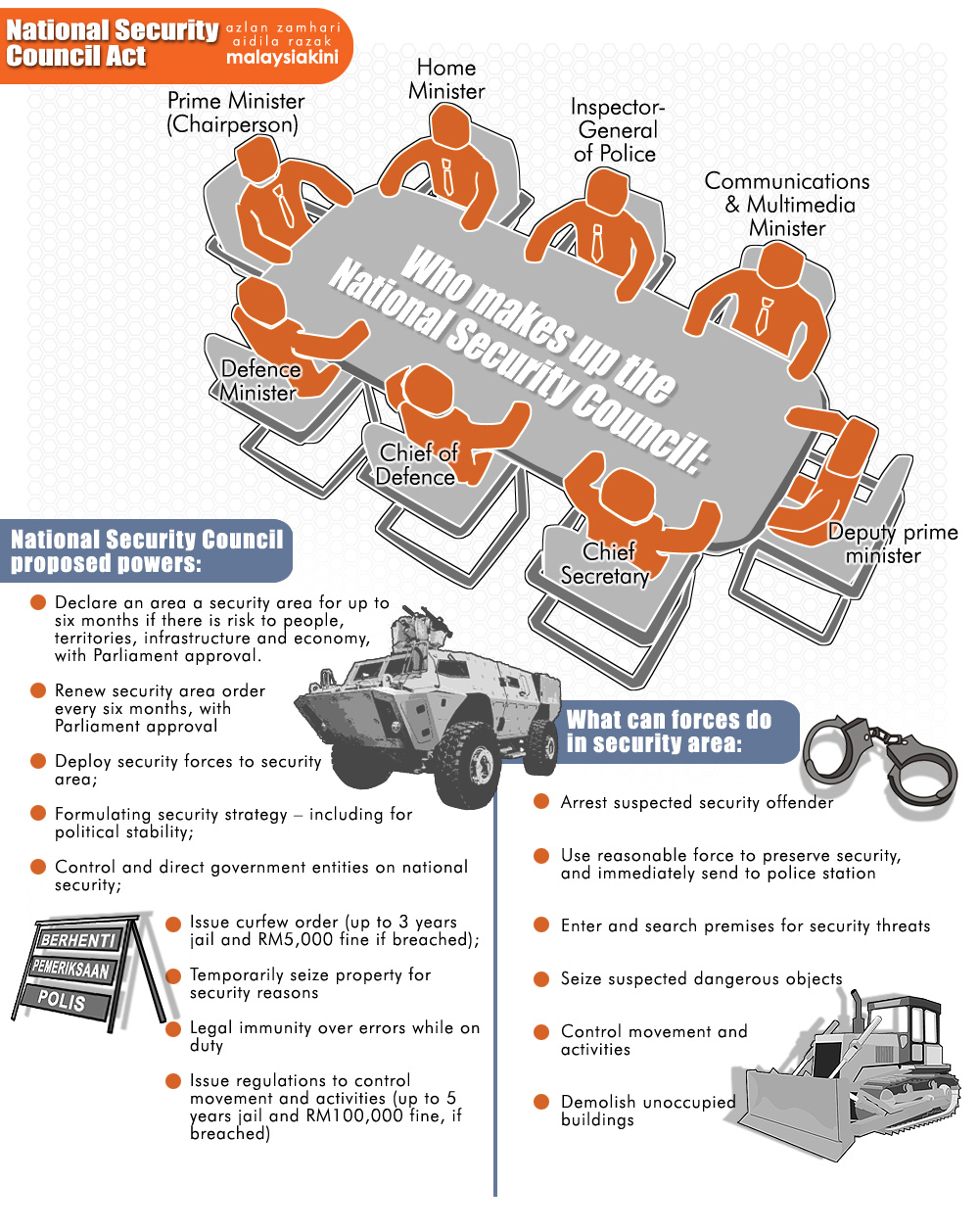Claims that the National Security Council (NSC) Act falls under Parliament’s oversight are not true at all, said Lawyers for Liberty executive director Eric Paulsen.
"Power is with the PM. Declaration is only 'laid' before Parliament.
"Therefore incorrect to say that Parliament has oversight or subject to Parliament's approval regarding declaration of security area," Paulsen said in a Twitter posting last night.
He was commenting on what he said was "misinformation" being spread about the NSC Act that Parliament has oversight over the power to declare a security area and that the powers under the Act are still subject to parliamentary approval.
The lawyer posted an excerpt from Section 18 (6) of the NSC Act, which states that the power to declare security areas lies with the prime minister.
The Act adds that the head of government is required to have the declaration "laid before Parliament" at the earliest convenience.
The same subsection also states that a resolution passed by both houses of Parliament can overturn any such declaration.
However, it will not prejudice any action already taken in accordance with the earlier declaration.
This means that Parliament would only be notified that a security area had been declared, after the act itself.
So while Parliament can reverse a security area declaration, its approval or even oversight is not required, as stated in the NSC Act.
Since only the government can call for emergency Parliament sittings, laying the notice before the legislature is moot if it is not done during one of the three regular sittings and the government does not accept any other call for a sitting.
The NSC Act, which came into force on Monday, received brickbats from civil society and critics.
The government has defended the legislation, arguing that the power to declare security areas under the Act still falls under the oversight of Parliament and requires legislative approval.
This, argued the government, is far different from declarations of national emergency, which may see even the legislature and civil liberties suspended.


